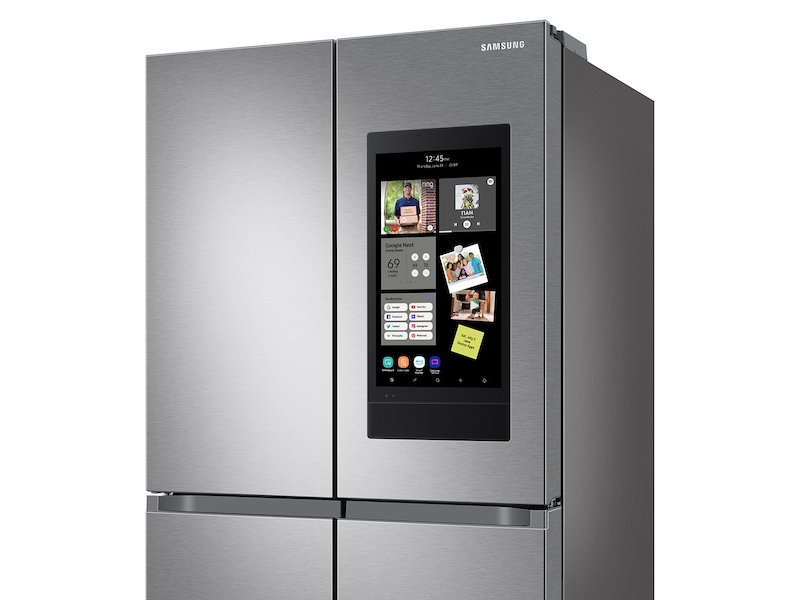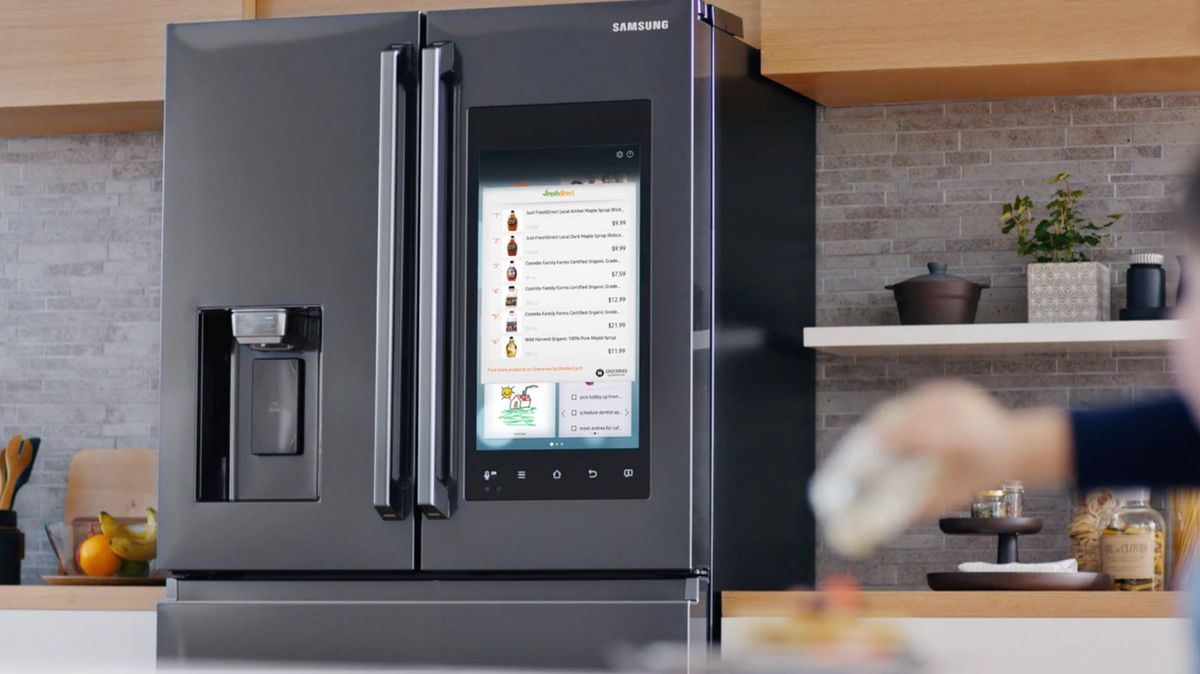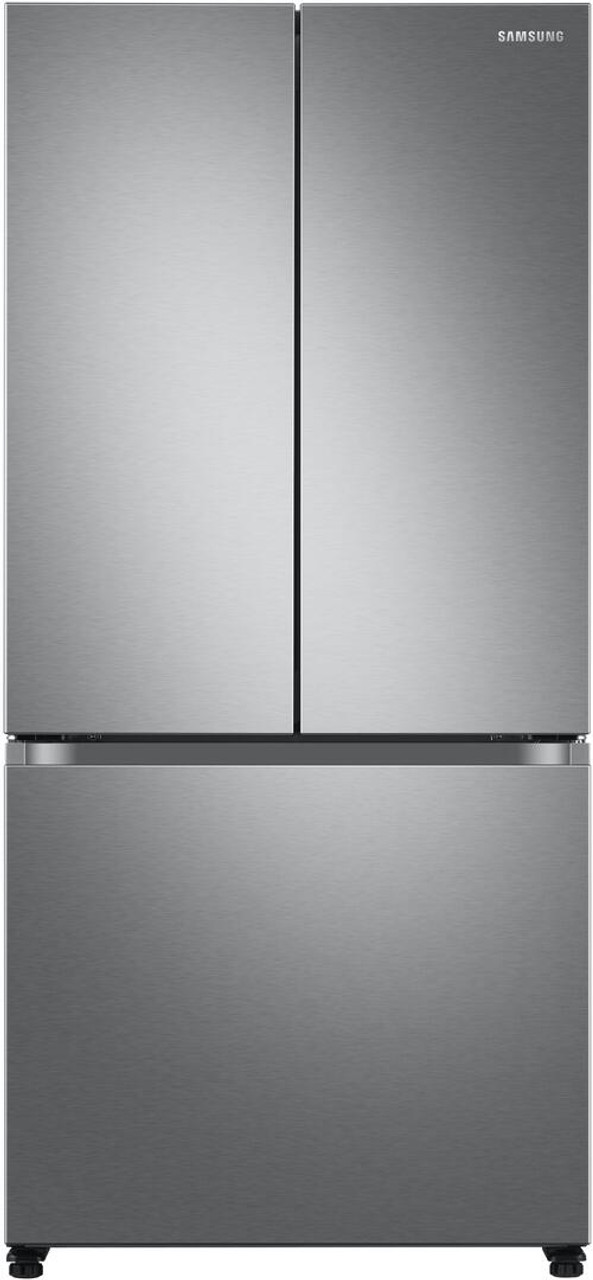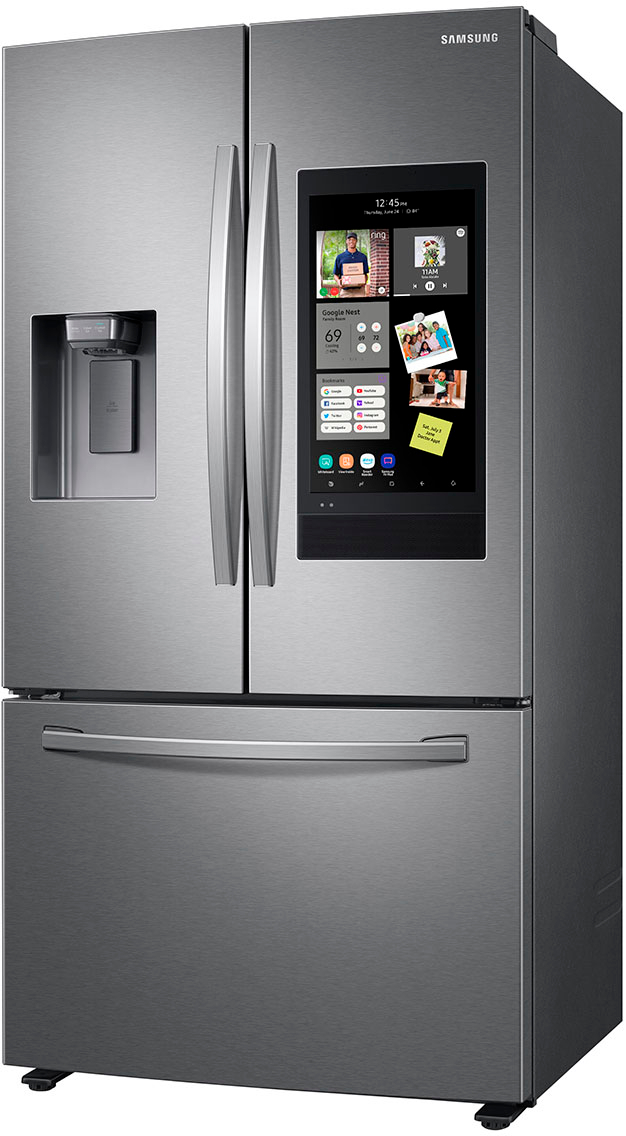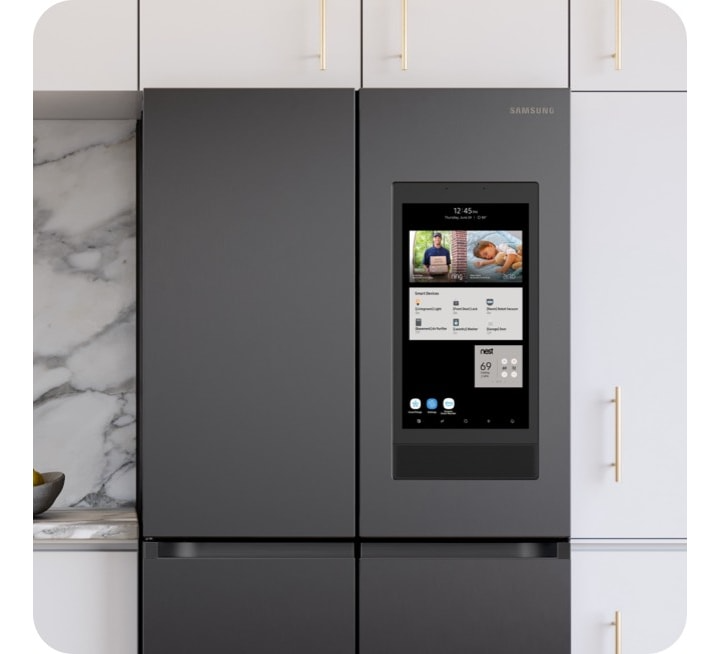In today’s fast-paced world, convenience and technology are at the forefront of modern living. The kitchen is no exception. The advent of smart home appliances has ushered in a new era of efficiency and connectivity. Among the pioneers of this revolution is the Samsung Smart Fridge. Combining cutting-edge technology with practical functionality, the Samsung Smart Fridge is changing the way we live, cook, and interact with our kitchens.

Evolution of the Refrigerator: From Iceboxes to Smart Appliances
Refrigeration technology has come a long way since the humble beginnings of iceboxes. Early models focused solely on preserving food. Modern refrigerators offer far more. The transition from basic cooling units to advanced, smart appliances reflects broader trends in technological advancement and consumer expectations.
The Rise of Smart Appliances
As households embraced the benefits of Internet of Things (IoT) technology, appliances evolved accordingly. The concept of a smart fridge was introduced to the market in the early 21st century. Manufacturers like Samsung saw the potential to integrate smart features, making everyday tasks easier and more efficient.
Early smart fridges offered limited features, focusing primarily on connectivity and basic notifications. However, the real breakthrough came with the integration of touch screens, cameras, and advanced sensors. These innovations allowed users to manage their kitchen activities like never before. Samsung emerged as a key player in this space, leveraging its expertise in consumer electronics to develop some of the most advanced smart fridges on the market.
Key Innovations in Samsung Smart Fridges
Samsung’s approach to smart fridges goes beyond mere connectivity. The company has incorporated a range of innovative features designed to enhance user experience. From food management systems to entertainment options, Samsung Smart Fridges provide an unprecedented level of convenience and functionality.
One of the standout features is the Family Hub. This touch screen interface acts as the control center of the fridge. Users can manage grocery lists, check the contents of the fridge remotely, and access recipes. The Family Hub also serves as a communication platform. Family members can leave notes, sync calendars, and even share photos.
Samsung has also prioritized energy efficiency and sustainability. Advanced sensors and algorithms optimize cooling performance, reducing energy consumption. The introduction of AI-powered systems allows the fridge to learn user habits and adjust settings accordingly. This combination of convenience and sustainability is a significant selling point for environmentally conscious consumers.
The Core Features of Samsung Smart Fridges
Samsung Smart Fridges boast a myriad of features that set them apart from traditional appliances. These features are designed to simplify daily tasks, improve food management, and enhance overall kitchen experience.
Food Management and Inventory Tracking
A common challenge in any household is keeping track of food inventory. Spoiled food and missed groceries are frequent issues. Samsung Smart Fridges address this problem with advanced food management systems. Built-in cameras allow users to view the contents of their fridge remotely. This feature is incredibly useful when grocery shopping. Users can check their fridge from their smartphones to ensure they are not buying items they already have.
The Family Hub extends this functionality. Users can add items to virtual grocery lists and set expiration date reminders. This minimizes waste and ensures the household is stocked with fresh ingredients. The fridge can even suggest recipes based on the available ingredients, making meal planning simpler and more efficient.
Enhanced Connectivity and Smart Home Integration
Samsung Smart Fridges are designed to integrate seamlessly with other smart home devices. They can connect to Wi-Fi and sync with voice assistants like Amazon Alexa and Google Assistant. This allows for hands-free operation. Users can ask their fridge to add items to the grocery list, play music, or update the family calendar.
The smart fridge also supports compatibility with Samsung’s SmartThings ecosystem. This integration enables users to control and monitor connected appliances from a single app. For example, users can check the status of their washing machine or adjust the thermostat directly from the fridge’s touch screen.
Entertainment and Communication Hub
In addition to its practical features, the Samsung Smart Fridge serves as an entertainment and communication hub. The Family Hub’s touch screen can stream music and video, making it possible to enjoy your favorite shows or playlists while cooking. The integration of streaming services like Spotify and Netflix elevates the entertainment experience.
Communication is another key aspect. The Family Hub allows family members to leave notes, sync schedules, and share photos. This fosters a more connected household, enhancing communication and organization. With the ability to display calendars, set reminders, and post messages, the smart fridge becomes the central hub for family activities.
The Impact of Samsung Smart Fridges on Modern Living
The introduction of Samsung Smart Fridges has had a profound impact on modern living. These appliances not only improve kitchen efficiency but also contribute to a more connected and sustainable lifestyle.
Enhancing Efficiency and Convenience
One of the primary benefits of Samsung Smart Fridges is the enhanced efficiency they bring to daily tasks. The ability to manage food inventory remotely saves time and reduces waste. Automated grocery lists and expiration reminders ensure that households are always stocked with fresh ingredients. This streamlining of kitchen activities allows users to focus on other important tasks.
The integration with other smart home devices further boosts efficiency. Users can control multiple appliances from a single interface, simplifying household management. The convenience of voice commands and remote control adds an additional layer of ease to daily routines.
Promoting Sustainability
Sustainability is a growing concern for many consumers. Samsung Smart Fridges address this by incorporating energy-efficient technologies and reducing food waste. Advanced sensors optimize cooling performance, minimizing energy consumption. AI-powered systems learn user habits and adjust settings to conserve energy.
Food management features also contribute to sustainability. By reducing food waste and ensuring efficient use of ingredients, these smart fridges help lower the household’s environmental footprint. This combination of energy efficiency and waste reduction aligns with broader efforts to promote sustainable living.
Fostering a Connected Home
Samsung Smart Fridges play a pivotal role in creating a connected home environment. The integration with smart home ecosystems allows for seamless communication and control of multiple devices. This creates a cohesive and efficient living space.
The Family Hub’s communication features enhance household interaction. Family members can stay connected through shared calendars, notes, and photos. This fosters a stronger sense of community and organization within the home. The ability to stream entertainment and stay informed while cooking adds to the overall connected experience.
Challenges and Considerations
While Samsung Smart Fridges offer numerous benefits, there are also challenges and considerations to keep in mind. Understanding these factors can help potential buyers make informed decisions.
Cost and Affordability
One of the primary challenges is cost. Smart fridges, particularly those with advanced features, come with a higher price tag compared to traditional models. The investment may be justified by the convenience and efficiency they offer, but it’s important for consumers to assess their budget and needs.
Potential buyers should also consider ongoing costs. Smart fridges require a stable internet connection for full functionality. Subscription services for streaming and smart home integration may also add to the overall expense.
Privacy and Security Concerns
As with any connected device, privacy and security are important considerations. Smart fridges collect data to optimize performance and offer personalized features. However, this data collection raises concerns about user privacy.
Manufacturers like Samsung implement stringent security measures to protect user data. Regular software updates and secure connections are crucial in maintaining a safe user environment. Consumers should be aware of these considerations and take steps to safeguard their privacy, such as using strong passwords and staying informed about security updates.
Dependence on Technology
The convenience of smart fridges comes with a potential downside: dependence on technology. While these appliances simplify many tasks, users should be prepared for potential technical issues. Power outages, internet disruptions, and software glitches can impact functionality.
It’s important for consumers to have a basic understanding of troubleshooting and to stay updated on firmware releases. This preparedness ensures that they can address any issues that may arise and continue to enjoy the benefits of their smart fridge.
The Future of Samsung Smart Fridges
As technology continues to advance, the future of Samsung Smart Fridges looks promising. Several trends and innovations are likely to shape the next generation of these appliances.
AI and Machine Learning
The integration of artificial intelligence (AI) and machine learning will further enhance the capabilities of smart fridges. These technologies can provide more accurate food management, predictive maintenance, and personalized recommendations. The fridge can learn from user habits, adjusting settings and suggesting recipes based on preferences.
AI-driven features can also improve energy efficiency. The fridge can analyze usage patterns and optimize performance to reduce energy consumption. This not only lowers utility bills but also supports environmental sustainability.
Enhanced Connectivity and Interoperability
Future Samsung Smart Fridges will likely offer even greater connectivity and interoperability. As smart home ecosystems evolve, the ability to seamlessly integrate with a wider range of devices will become standard. This includes enhanced compatibility with third-party apps and services.
The development of open standards for smart home devices will facilitate this interoperability. Consumers will have more flexibility in choosing and managing their smart home products, creating a more cohesive and user-friendly living environment.
Health and Wellness Features
Health and wellness are becoming increasingly important in modern living. Future smart fridges may incorporate features that support these goals. This could include nutritional tracking, personalized diet recommendations, and integration with fitness apps.
For example, the fridge could suggest meal plans based on dietary goals and restrictions. It could also track the nutritional content of stored food, helping users make healthier choices. The integration with health and fitness apps creates a holistic approach to wellness, enhancing the overall quality of life.
Conclusion: Embracing the Future of Smart Kitchens
The Samsung Smart Fridge represents a significant milestone in the evolution of home appliances. It combines advanced technology with practical functionality to create a more efficient, connected, and sustainable kitchen environment. While there are challenges to consider, the benefits of enhanced convenience, energy efficiency, and home connectivity are compelling.
As technology continues to advance, the possibilities for smart fridges are virtually limitless. AI, enhanced connectivity, and health-focused features will shape the next generation of these appliances, further transforming the way we interact with our kitchens. Embracing the future of smart kitchens means embracing a lifestyle of convenience, efficiency, and innovation. The Samsung Smart Fridge is not just an appliance; it’s a gateway to a smarter way of living.
